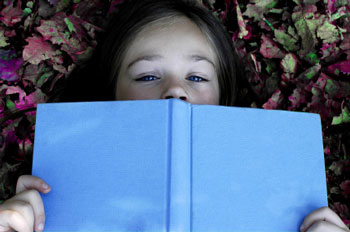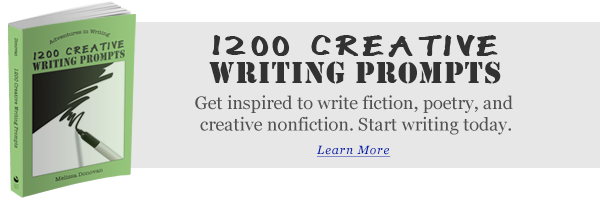Today’s post includes a selection of prompts from my book 1200 Creative Writing Prompts. Enjoy!
Stories and poems for children are among the most magical and delightful written works in the literary canon.
Children’s literature has a universal appeal; the phenomenal international popularity of the Harry Potter books and movies is a testament to the power of children’s stories.
But there are plenty of other works that affirm the longevity of children’s literature: nursery rhymes, fairy tales, and classics such as Where the Wild Things Are, Goodnight Moon, and everything Dr. Seuss (aff link) ever wrote.
Most of us writers first fell in love with the written word when we were children. Stories carried us on fantastical adventures. Words danced and soared through our imaginations. Many of us never grew out of the poems and stories we first cherished. We continue to enjoy them, and we pass them on to our children, grandchildren, nieces, and nephews.
Today’s writing prompts celebrate children’s literature and pay tribute to the young and the young at heart.
Writing Prompts
These writing prompts are filled with childlike wonder. Use them to write a poem, a story, or anything else that comes to mind.
- Children’s stories sometimes try to help kids solve difficult problems. Write a story about children overcoming nightmares, getting potty trained, wetting the bed, losing a pet or grandparent, or attending the first day of school.
- At the height of human technological development, a special child is born who can communicate telepathically with computers and other mechanical and electronic devices.
- Write a poem using the following image: a child sitting alone on a bench in a schoolyard.
- After learning his or her parents are struggling to make ends meet, a child prodigy decides to fix the family’s finances.
- Write a story about a child and his or her imaginary friend.
- A child living on a farm or ranch can hear the thoughts of animals—both the livestock and the local wildlife.
- Write a poem using the following image: a child giving another child a piggyback ride.
- While digging in the garden, a child finds a magic ring that makes any wish come true.
- It’s important for children to learn the alphabet. Write an ABC book. You can write a separate vignette for each letter, write a story linking them all together, or write a nonsense rhyme for each one.
Some Tips for Using These Writing Prompts:
- Children’s writing uses simple language and made-up words.
- Nothing speaks to children like bright, vivid images and lively characters.
- Use rhyme and other musical devices and choose words that are fun to say.
Do you still read children’s poems and stories? Do you remember the ones you loved best as a child? Have you ever tried writing for kids? Do these creative writing prompts inspire you? Share your thoughts in the comments, and keep writing!






What a great post. I can’t say I have ever seen a post on writing for children other than teen novels. So this is very refreshing. This is one of the main areas I write in. There is something really fun and special about writing from a child’s point of view, trying to see the world in the magical way that kids do. It is a wonderful way to stay young at heart as you say.
Thanks for posting this.
I have a niece and a nephew (both toddlers) so writing for children is often on my mind. I’m not sure I want to tackle it, but I know that the books I read as a child had a significant impact on me. I love children’s books! Thanks for commenting, Tiffiny.
Hello.
Thanks for the great post.
Talking about literature for the kids, I was thinking that it must be one of the hardest types of literature.
I mean, kids are no literary snobs. A grown up might read a boring book just out of ego. But not a kid. If they don’t like what they are reading they will simply put it aside and forget about it.
Let’s celebrate all those pieces of literature that got many kids started in literature, kids who will grow up to be great writers.
Thanks again!
Yes, I imagine that writing for children would be particularly difficult. Children aren’t literary snobs, but they’re viciously honest about what they like and don’t like, and they are fickle!
I have a friend who has launched a business of e-books that feature the child whose parents purchase it. In playing with some story ideas, I began to realize how difficult it is to write for this group!
There are certain authors that my children grew to love, but only because we read the books aloud FIRST. These include Edith Nesbit, Brian Jacques, Jean Craighead George (actually, quite a few of the older Newberys). There was something about the snuggling and reading — even when they were pre-teens, that made those books more deliciously satisfying. Because they had listened to and then read Nesbit, Lewis and Tolkien, when they read Harry Potter, they immediately recognized where ideas had been borrowed, and were disappointed in the author. They did enjoy them, but a little less due to the breadth of their exposure.
By the way, if you ever get a chance to listen to a Brian Jacques presentation of one of his books on CD or mp3, it is magnificent. He originally wrote his stories for blind children. The descriptions had to be rich indeed!
I received a book like that as a gift when I was a child. I (Melissa) was the main character and all my cousins and pets were characters in the story. I’m not sure where my aunt got it, but this was back in the 80s, so it definitely wasn’t from the web. I think it’s wonderful that your children were able to identify similarities between Harry Potter and earlier works and to recognize them as inspiration for Rowling. Of course, Nesbit, Lewis, and Tolkien were themselves inspired by earlier works. It’s a bit like the food chain, isn’t it? Thanks so much!
I love reading children’s books and children’s poetry. I keep a whole shelf of kids’ books around in case I need a little ‘inner kid’ time. Being able to write for children definitely takes a special mind. When I’m feeling not so creative or like being an adult and having all the associated responsibilities is terribly overrated, I read to myself a bit about faeries or something from Dr. Seuss or Shel Silverstein to bring back a little magic to everyday life.
I love my collection of children’s books; my Seuss and Silverstein books are absolutely precious! Children’s books definitely bring a little magic to everyday life (as do children!). Another favorite of mine, which I read to my niece and nephew, is called Haiku Baby. My little nephew loves to find the tiny bluebird on every page, and he practices his words from the pictures in the book: turtle, sun, moon, flower. It’s wonderful (I highly recommend it!).
Thanks for bringing up silly nonsense. It’s easy for writers to forget about silly nonsense, but even in stories for adults, an element of nonsense in a story can add a whole different element to a story where it could have been flat and less attention-grabbing. I recently read something about adding quirks to characters to make them more three-dimensional and better serve the story and the readers. I really think your tip on nonsense can be easily added to a story at any level in any genre by taking it as an element of a character to make them more flesh-and-blood and less papery.
I think reading and writing nonsense is great for promoting language skills. I’m working on a story now (not a children’s story) and I can’t think of a way I’d bring nonsense into it unless I introduced a character who is a little crazy or something. That could be fun and interesting.
I’m not really into children’s books, but my writing/critique partner has a series she’s working on that uses dragons. Had to share it with her… Thanks, Melissa!
Thanks, Paul!